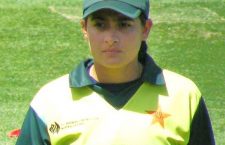An examination of the true meaning of value in murky U.P. badlands that weighs its peoples in the ruthless tarazu of caste and gender politics. And it never ever fails to casually fling away those who do not matter in the Bundelkhandi big picture, straight into oblivion. Dalits, women, Dalit women. Nothing is amiss, life goes on. All in the skip of a heartbeat.
There’s this joke we’ve encountered, told and retold with much glee and cheekiness, usually delivered by an old uncle or aunt, in their best ‘such is life and life is unfair’ tone, and it goes something like this: When a girl is young, unmarried, somebody’s daughter, she’s a “full rupaiyya”. When she marries and becomes a wife, she becomes an “atthanni”. When she gives birth and is a mother, she is transformed into a “chavvanni”. And when her second child is born, well… do the Math.
Even if you haven’t encountered this particular joke, the mool-dhaar of it, we’re sure, you’re familiar with. How many stale rotis and teas gone cold will it take before anybody realizes that the lady of the house is not a wastebin to dump stale meals in? And even those are first world problems. How many life-threatening illnesses, pregnancies, nights of domestic abuse, days of mental violence, will it take for a woman in rural Uttar Pradesh, to stop and wonder why this is happening, why is she doing this to herself? These are not trick questions.
Because women, the worst bearers of patriarchy themselves, having ingrained it all down to their bones such that it settles on them like a second skin, do it to themselves, day in and day out. They take all the shit handed down to them, they ask for it themselves, they constantly, constantly disrespect their desires, feelings, egos, bodies. They put their own wants and needs and opinions and thoughts last. And this is how they devalue themselves.
Where we work and report from, this value is literal. You can cough it up as loose change, the worth of a woman’s life, who after several children, has possibly gone to less than zero, in the logic of that ugly, sexist joke.
And so what happens when she breathes her last? What can happen?
In archetypal Bundelkhandi fashion, where nothing is as it seems, and everything is convoluted, or upside down, her real value, it turns out, gets upped and enhanced once she’d dead and gone.
Because death and its aftermath can bring what her life never could – Compensation. Muaavzaa. That magical word that means money. Hard cash. Who can every say no to that?And in a hand-to-mouth existence, it blends into much-needed subsistence. For the rest of it, all you have to deal with is the ghost of a murdered woman.
One such story we reported on last week was in the village of Barehta in Banda district, and her name was Uma. It means splendour and is a synonym for Parvati, but let’s not get carried away here.
Uma died in late Marchunder mysterious circumstances – the post mortem report revealed several inflicted wounds on various parts of her body, and some hairdyepowder, which could allegedly work as poison, placed on the insides of her mouth.It’s what her family, from her husband to her in-laws, have been saying ever since – that Uma committed suicide. They can’t say when, they can’t say why; they insist she was absolutely fine and that nothing had happened to prove otherwise. Hearing them speak, Uma’s life sounds like the very picture of marital bliss and when we ask how that could lead her to a point of no-return, to a wall she was so certain she couldn’t overcome, they merely shrug.
And of course, there is the matter of the post-mortem report.
The story gains sinister hues when we visit Uma’s maayka. Everyone here, from her parents to her brother-in-law and bhabhi is certain that this is a case of dowry death. Uma’s in-laws, they said, had asked for several things. Her father, has a list he rattles off that includes among other things, “a buffalo, a gold necklace, a gold ring”. He further goes on to tell us that he had promised them everything and all they had to do was wait out the chaith period, after which harvest would follow, which would mean some money.“But they didn’t wait and killed her,” he adds. Uma’s sister-in-law relates the phone call they got from Uma’s home, “They simply said, ‘She ate sookha dye and she’s dead. They hung up the phone then and after that it was switched off’.”
The law on dowry deaths is a curious one – after 14 years of marriage, it is not considered a legitimate reason of culpable homicide anymore; and while this is a legal check in place, it often leaves shady doors open, and loopholes gaping wide.
Hence what unfolds often enough is another curious phenomenon that has a very special place in the patriarchal landscapes of Bundelkhand. It’s called samjhauta, a beautiful word that implies kindly understanding and empathy, but in reality, is a deal, plain and simple. In cases such as Uma’s, the deal is of a woman’s life, over her dead body – literally, since they often take place at the cremation sites, and are common enough in Banda and Chitrakoot to have a term all to themselves – laash par samjhauta. The other popular site of the samjhauta is the police station, given how chust cops get in a scenario like this, opting for an active role in ensuring these samjhautas go smoothly; taking charge as middle men and mediating the negotiations. The village pradhan tells us it’s a preferred route since it saves everyone the hassle of police and doing the court-kachehri rounds. In this samjhauta, the girl’s maternal side sits down with her in-laws and extended in-laws and makes a settlement reasonable to both sides. Money is exchanged – perhaps a buffalo or two – and it’s all done and dusted. Local well-wishers as well as village heads themselves man these proceedings, as their good deed of the day/year, it would appear. Families part ways amicably, the children stay on with their mother’s killers, and all is soon forgotten.
The parents of the deceased woman reason it out to themselves, playing an understandable game of justification and over-rationalization you could say – they, after all, are never going to get their daughter back and in a bid to protect the honor of the village and the family, they settle for money.
From our own decades of breathing it all in, we also know, only too well, the firm grip patriarchy has on mindsets and thought processes: The woman’s family lives by an unshakeable truth, the one that firmly believes a woman’s place is in her marital home, no matter what.
The ghost of the murdered woman, meanwhile, haunts the house, the village, and joins a new sisterhood – we imagine them floating about all across Bundelkhand, arm-in-arm, speaking of broken lives, and the many uses of hair dye.
While Uma’s family has not succumbed to the samjhauta yet, it seems, it could just be a matter of time before Uma too is a wistful memory at best. All her splendour gone forever.

